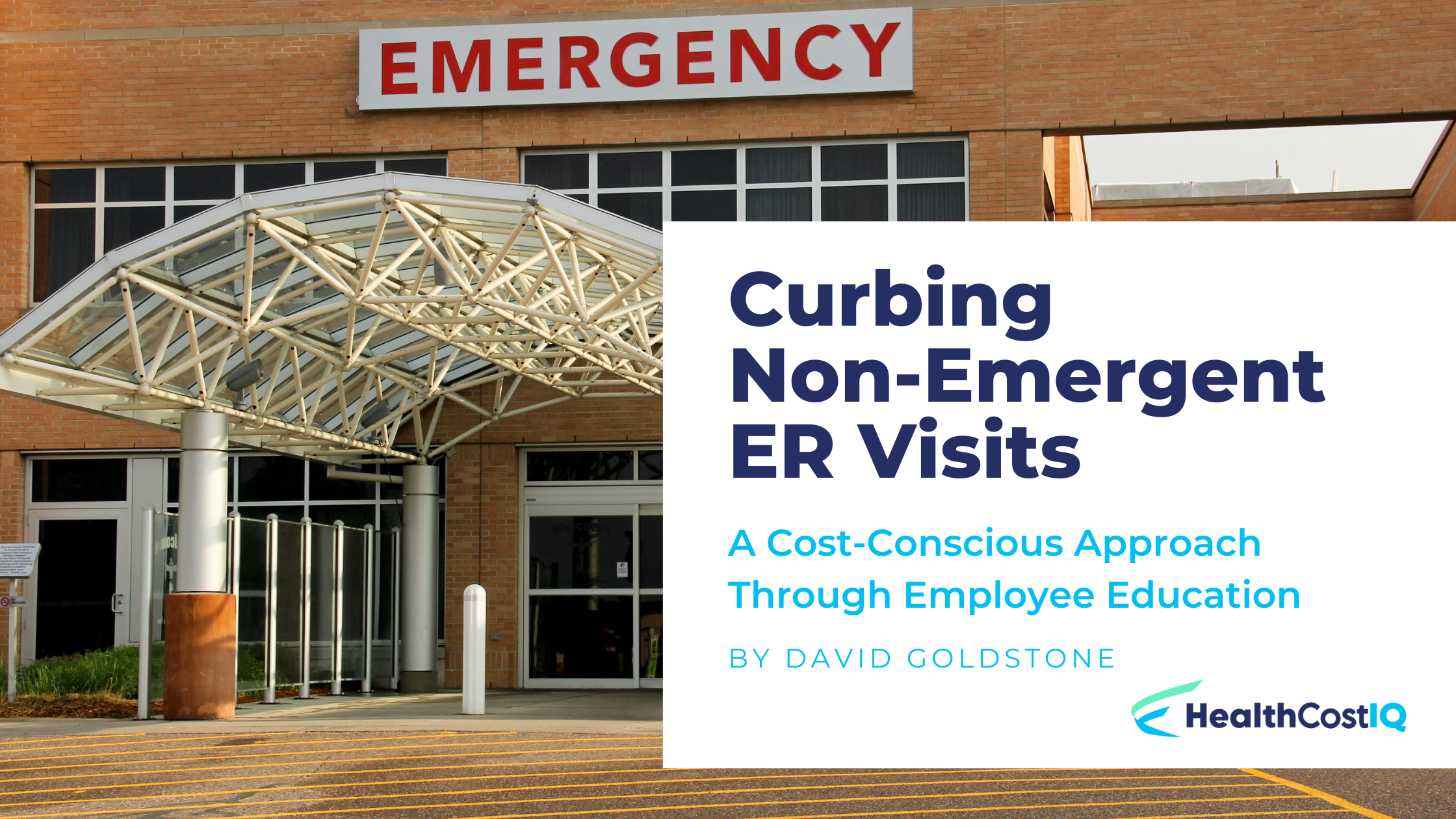
A Cost-Conscious Approach Through Employee Education
Did you know that when employees visit the hospital emergency room (ER or ED) for minor, non-urgent issues, it can cost your company thousands in avoidable expenses? It’s a problem that occurs more often than you may think. According to NCBI, 61.4% of ER visits are considered non-urgent. NCBI reporting goes on to share that the most common reasons for non-urgent visits are routine examination/investigation (40.9%), medication refilling (14.6%), and upper respiratory tract infection/symptoms (9.9%).
HCIQ’s tools monitor ER and urgent care visits, identifying cases of unnecessary spending. HCIQ has helped clients pinpoint tens of thousands of dollars of potential savings by analyzing the reasons behind these visits. If you're interested in understanding why patients often choose the ER for non-urgent needs and how to educate your employees to make better choices, leading to substantial health plan savings, keep reading.
Why Choose the ER?
There can be many reasons why your employees will visit an ER for a non-emergent issue. Below we cover just a few common reasons, some of which can be addressed through education.
- Limited Access to Alternatives: Many patients choose the ER because it's always open, unlike urgent care centers or primary care providers (PCPs). If there’s no nearby urgent care or if it’s closed when they need help, the ER becomes the default option, especially if they believe their condition might be serious.
- Lack of Awareness of Urgent Care: Despite the rise in urgent care facilities, many patients are still unclear about when to use them or how their services compare to the ER. Some may not realize that urgent care can address their needs or haven’t researched nearby options, leading them to choose the ER out of habit or familiarity.
- Misconceptions About ER Superiority: Patients often believe the ER offers faster or more comprehensive care, even for minor issues. However, urgent care centers are often a better choice for non-emergent concerns, providing shorter wait times and lower costs, benefiting both the patient and the health plan.
Education is Key
To effectively retrain your team and eliminate the costly medical habit of visiting the ER for non-emergency needs, education is key. By fostering an environment that emphasizes awareness of alternative healthcare options, you can guide employees toward making informed decisions about their medical care. Ensure that your employees are well-versed on all the care options available to them and how to access information about the urgent care centers most convenient to them.
By advising employees to seek emergency care only when truly necessary, you can significantly lower the strain on ER services and protect unnecessary health plan spend. Consider hosting an information session followed up by documentation that highlights the differences between ERs and urgent care centers, and the pros and cons of both.
Additionally, consider implementing financial incentives to encourage employees to choose appropriate care settings. Let them in on the financial savings you’ll incur when they choose an urgent care over the ER! These incentives can be a powerful motivator in reducing the frequency of unnecessary ER visits, ultimately leading to cost savings for your company and better health outcomes for your employees.
Take the Next Step
If you’re searching for an easy way to reduce your health plan costs, HCIQ’s ED and Urgent Care Dashboard is the answer. HCIQ’s clients use this dashboard regularly to drill into the details of their employee ER visits. They’re able to identify the days and times of visits, as well as the care received. Based on this intel, they can educate employees on when and why to visit the ER and guide them to alternative care providers when appropriate. As a result, they’ve reduced the number of ER visits their employees make for non-emergent care and have experienced a significant reduction in their health plan spend.
Connect with our experts for a personalized consultation to learn more about how this tool can be useful in your team’s efforts to manage expenses. Contact HCIQ today.


Leave Your Comment Here